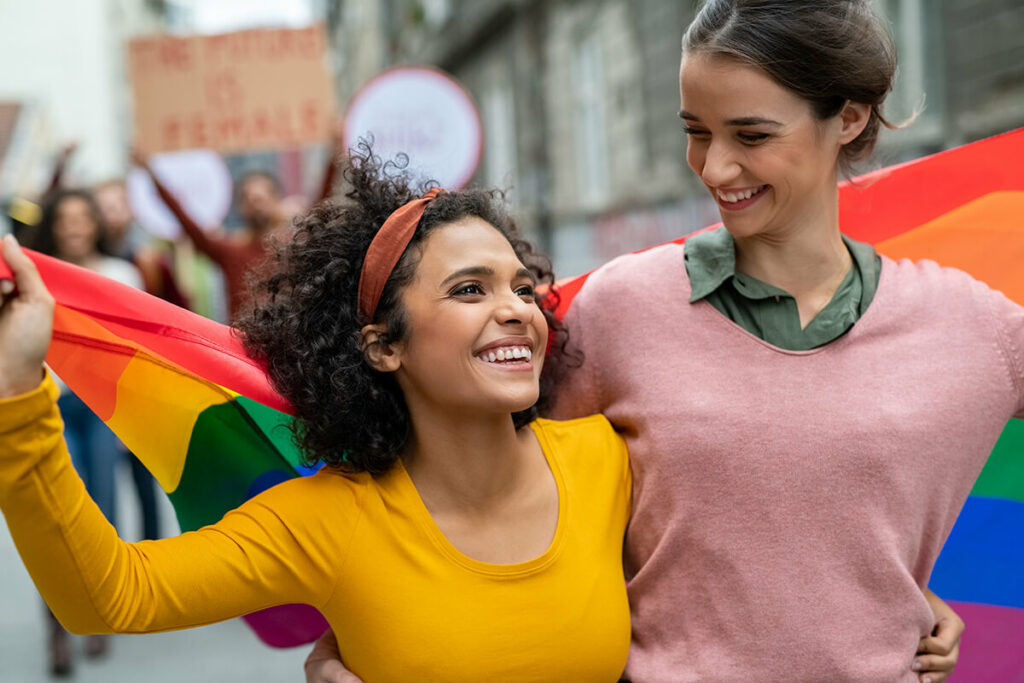In today’s society, love knows no boundaries, and the LGBTQ community is a testament to that. LGBTQ relationships, like any other, come with their unique set of challenges and rewards. This article aims to provide valuable LGBTQ Relationship advice and insights for individuals in LGBTQ relationships, helping them navigate the ups and downs while fostering love, understanding, and connection.
Contents
- 1 Understanding LGBTQ Relationships
- 2 Challenges in LGBTQ Relationships
- 3 12 LGBTQ Relationship Advice
- 3.1 Building a Strong Foundation
- 3.2 Establishing Trust and Respect
- 3.3 Overcoming Relationship Obstacles
- 3.4 Resolving Conflict
- 3.5 Maintaining Intimacy and Connection
- 3.6 Balancing Individuality and Togetherness
- 3.7 Seeking Support
- 3.8 Celebrating Love and Pride
- 3.9 Practice Active Listening
- 3.10 Navigate Coming Out Together
- 3.11 Celebrate Relationship Milestones
- 3.12 Practice Self-Care
- 4 Conclusion
Understanding LGBTQ Relationships

LGBTQ (Lesbian, Gay, Bisexual, Transgender, and Queer) relationships are similar to any other relationship in many ways. They are based on love, trust, respect, and mutual understanding between individuals who identify as LGBTQ. However, there are some unique aspects and challenges that LGBTQ individuals may face in their relationships due to societal attitudes, discrimination, and legal issues.
- Sexual Orientation and Gender Identity: LGBTQ relationships involve individuals who may identify as lesbian, gay, bisexual, transgender, queer, or other non-binary identities. Each person’s sexual orientation and gender identity can influence their experiences and dynamics within the relationship.
- Coming Out: Coming out is an important process for many LGBTQ individuals, and it can also affect their relationships. It involves disclosing one’s sexual orientation or gender identity to friends, family, and loved ones. This process can vary in difficulty and may impact the relationship dynamics and support systems available to the individuals involved.
- Acceptance and Support: LGBTQ relationships thrive when there is acceptance and support from both partners, as well as their broader social circles. Having a safe and affirming environment allows individuals to express themselves authentically and fosters a healthier relationship.
Challenges in LGBTQ Relationships
LGBTQ relationships can face a range of challenges, many of which stem from societal attitudes, discrimination, and unequal treatment. Here are some common challenges faced by LGBTQ individuals in their relationships:
- Stigma and Discrimination: LGBTQ individuals often experience societal stigma, prejudice, and discrimination. This can manifest in various ways, such as verbal harassment, social exclusion, or even physical violence. The impact of these external pressures can place strain on relationships and affect individuals’ mental health and well-being.
- Family and Social Rejection: Some LGBTQ individuals may face rejection or lack of acceptance from their families or social networks. This rejection can create significant emotional distress and strain within relationships, as individuals navigate their identities and seek support and validation from their loved ones.
- Legal and Institutional Barriers: Legal rights and protections for LGBTQ individuals vary widely across countries and regions. In some places, same-sex relationships may not be legally recognized, which can impact issues such as marriage, adoption, and parental rights. Discrimination in employment, housing, and healthcare can also affect the well-being and stability of LGBTQ relationships.
- Lack of Representation and Role Models: LGBTQ relationships often lack representation in mainstream media and society, making it more challenging for individuals to find relatable role models or healthy relationship models. This can lead to feelings of isolation and uncertainty about what a healthy LGBTQ relationship should look like.
12 LGBTQ Relationship Advice

Remember, every relationship is unique, and these tips may help you in certain situations:
Building a Strong Foundation
To build a strong foundation, individuals in LGBTQ relationships need to practice self-acceptance and self-care. Embracing your identity and loving yourself unconditionally lays the groundwork for a healthy and fulfilling partnership. Engaging in activities that bring joy and fulfillment can contribute positively to your overall well-being and, by extension, your relationship.
Establishing Trust and Respect
Trust and respect are the cornerstones of any successful relationship. In LGBTQ relationships, it is crucial to establish a safe space where partners can be vulnerable and authentic. Honesty and openness are key components in nurturing trust and respect. By sharing your feelings, fears, and aspirations with your partner, you build a solid foundation for intimacy.
Overcoming Relationship Obstacles
One of the significant obstacles LGBTQ couples face is the reaction of family and friends. It’s essential to address these challenges head-on while also setting healthy boundaries. Educating loved ones about LGBTQ issues and providing resources for them to better understand your relationship can be instrumental in fostering acceptance and support.
Resolving Conflict
Conflict is a natural part of any relationship, but it’s how we address and resolve it that matters most. In LGBTQ relationships, active listening and empathy are vital tools for conflict resolution. By genuinely hearing each other’s perspectives and seeking to understand one another, you can find mutually beneficial solutions and strengthen your bond in the process.
Maintaining Intimacy and Connection
Emotional and physical intimacy are vital aspects of LGBTQ relationships. Building emotional intimacy involves being present, expressing affection, and creating opportunities for shared experiences. Physical intimacy can vary among individuals, so open communication about desires, boundaries, and consent is crucial to ensure both partners feel comfortable and fulfilled.
Balancing Individuality and Togetherness
Finding the right balance between individuality and togetherness is key in LGBTQ relationships. Each partner should have space to explore personal interests and hobbies while also nurturing shared activities and goals. Embracing both your identities and your shared journey helps create a dynamic and harmonious relationship.
Seeking Support
It’s important to remember that you’re not alone in your journey. Many LGBTQ support groups and resources provide guidance, encouragement, and a sense of community. Seeking support from these organizations can be immensely beneficial, whether it’s through counseling services, online forums, or local LGBTQ events.
Celebrating Love and Pride
Participating in Pride events and engaging with the LGBTQ community is a powerful way to celebrate love and pride within your relationship. These events offer opportunities for connection, celebration, and advocacy. By getting involved, you not only strengthen your bond as a couple but also contribute to a more inclusive and accepting society.
Practice Active Listening
Listening attentively and empathetically is essential in any relationship. Give your partner the space to express themselves without judgment, and strive to truly understand their perspective and experiences.
Coming out is a personal journey that can impact both partners in a relationship. Be patient, supportive, and understanding as you navigate this process together. Respect each other’s timing and provide reassurance and encouragement throughout.
Celebrate Relationship Milestones
Celebrate and acknowledge significant milestones in your relationship. Whether it’s an anniversary, commitment ceremony, or other meaningful events, take the time to honor and appreciate the love and growth you’ve shared.
Practice Self-Care
Taking care of yourselves individually contributes to the health of your relationship. Prioritize self-care activities that nurture your mental, emotional, and physical well-being. This allows you to bring your best self to the relationship and supports a strong foundation of personal happiness.
Conclusion
In conclusion, LGBTQ relationships thrive when nurtured with love, understanding, and open communication. By embracing self-acceptance, establishing trust, navigating obstacles, and celebrating love and pride, individuals in LGBTQ relationships can build strong, resilient partnerships. Remember that every relationship is unique, and it’s essential to find what works best for you and your partner. Embrace the journey, cherish the love, and always strive for growth and connection.
Life may sometimes be challenging for people from the LGBTQ community, but Online LGBTQ Counseling can help. Get experienced LGBTQ therapists at PrideMantra: Book a trial LGBTQ therapy session.


